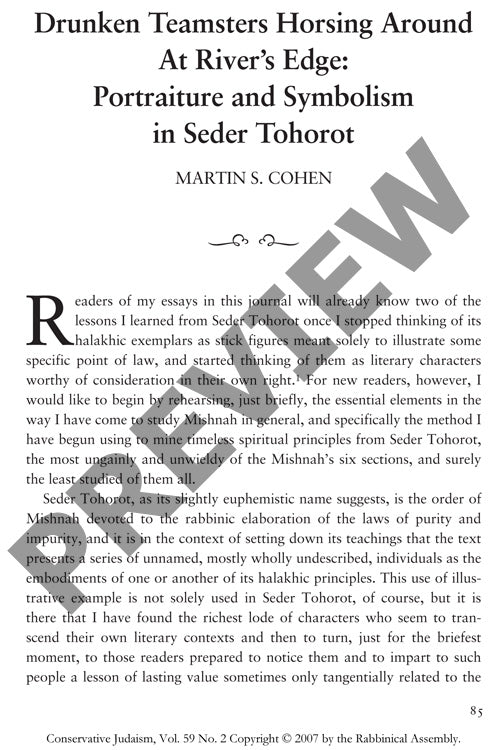Drunken Teamsters Horsing Around at Rive
Couldn't load pickup availability
When ancient rabbis debated whether a drunk teamster pushing his friend into a river created ritual impurity, they weren't merely splitting legal hairs—they were encoding profound teachings about human consciousness in religious life. Through literary analysis of exemplars in Seder Tohorot, the Mishnah's order on purity laws, apparently technical discussions reveal a sophisticated theology privileging intention over mechanical observance. A hermeneutical examination of these legal figures, particularly in Tractate Makhshirin's river crossing scenario, demonstrates how the rabbis transformed mundane legal distinctions into vehicles for spiritual instruction. By analyzing the interplay between physical and metaphorical understandings of ritual impurity (tumah), the research uncovers fundamental tensions in how these laws were conceptualized. Close textual reading combined with philosophical interpretation reveals that many tumah regulations only make sense when understood symbolically rather than materially. The rabbis consistently emphasized human will and intentionality as central to authentic religious experience, positioning focused intellectual and moral engagement—rather than mere physical compliance—as the path to divine encounter. This analysis ultimately reveals Torah study itself as a devotional practice, where legal analysis becomes a form of spiritual communion.

More Information
-
Physical Description
-
Publication Information
Published 2007
ISBN
-
Publication Credits
Martin Cohen

